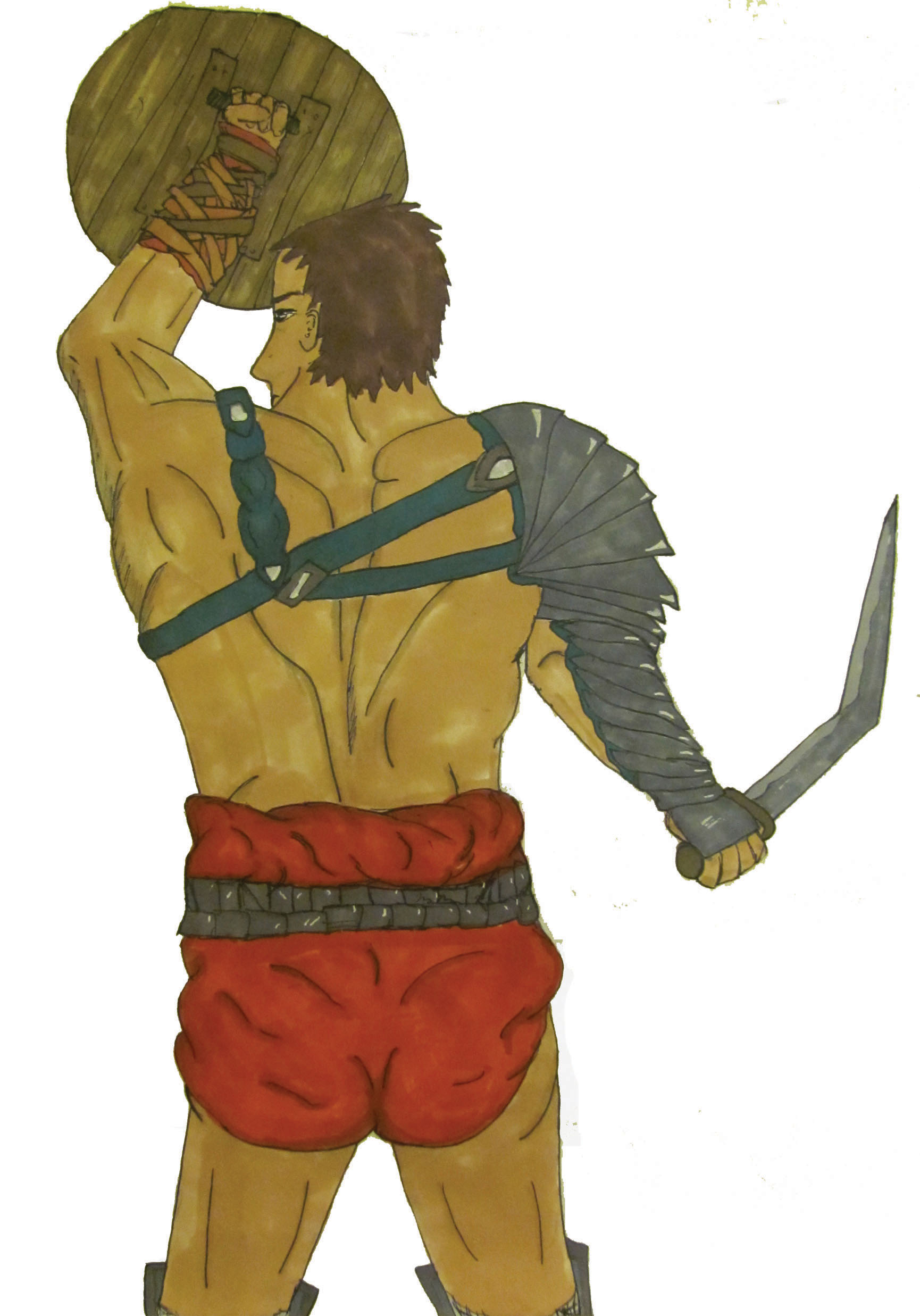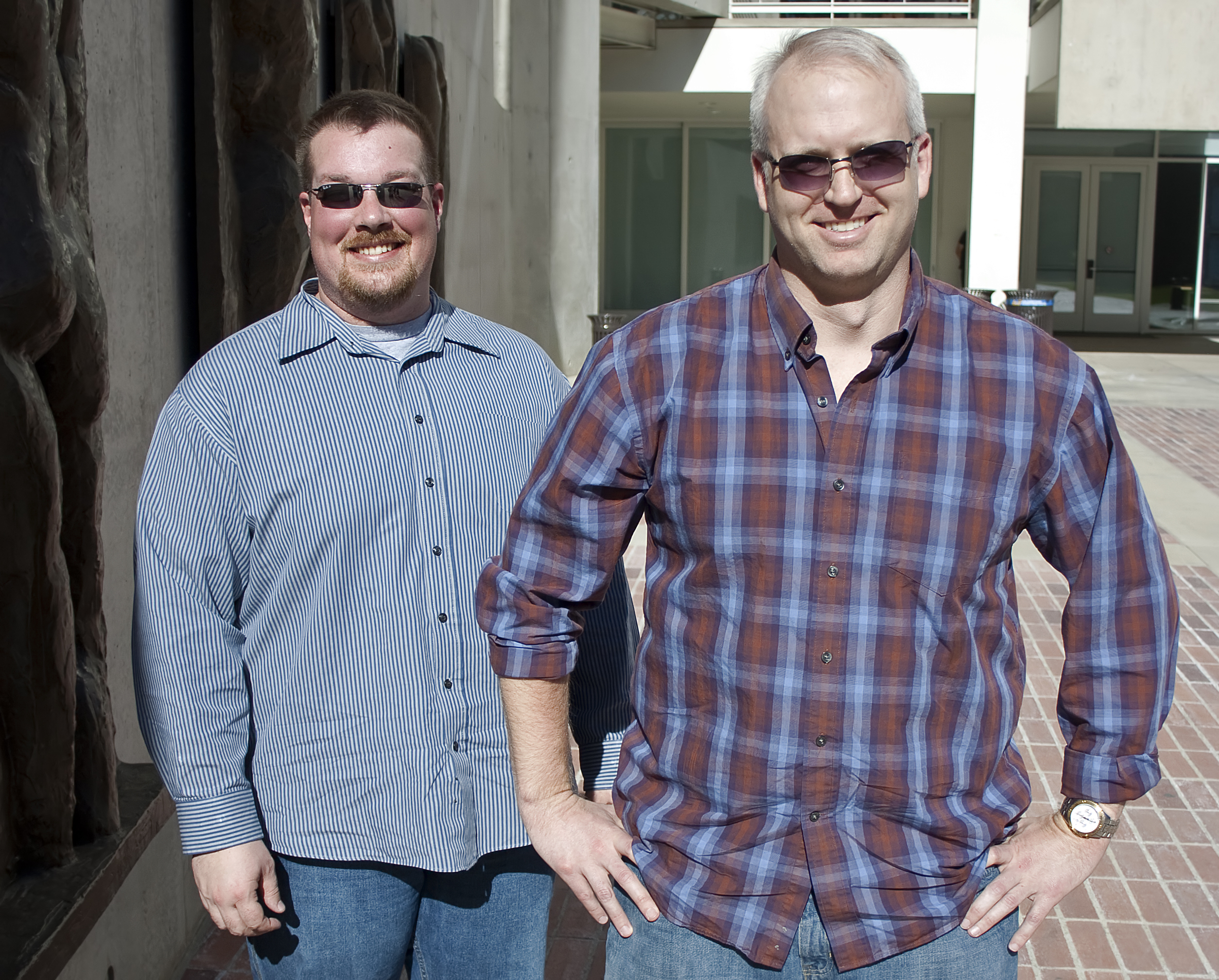
It’s not every day that UCLA doctoral students in history get a stab at working for Hollywood, especially for a show involving sex romps, vengeance and a whole lot of garroting.
That is what Jeffrey Stevens and Aaron Irvin get to play with as historical consultants for the Starz series “Spartacus: Blood and Sand” and its prequel, “Spartacus: Gods of the Arena.”
The show depicts the life of the historical figure Spartacus and his tenure as a slave in a gladiatorial school, as well as the complexities of ancient Roman society and hierarchy. The first season ended in April 2010, and the prequel will begin on Friday.
After answering some e-mail feelers calling for historical consultants for the show, both Stevens and Irvin were hired on to provide their extensive knowledge of Roman history and the central figure of the series, Spartacus.
“There isn’t a lot known about the precise historical events around the character of Spartacus. We put it into a historical context that fits in that time period. It’s not a question of did this actually happen, but could this have actually happened,” Irvin said.
Creator, show-runner and executive producer Steven S. DeKnight said that he knew the show needed historical veracity and sought consultants from his alma mater, UCLA. DeKnight said he was amazed by Stevens’ and Irvin’s encyclopedic knowledge of Roman history and culture, some of which have been incorporated into the show as both small details and large plot points.
“For example, in season one, we had the gladiators go into the baths and had them soaking like football players. Jeff and Aaron said they would actually be oiled down and scraped off and I thought that was cool. And that was one of the historical tidbits that make it into the show,” DeKnight said.
Both Stevens and Irvin gave the writers of the show a crash course in Roman history before the writers started writing and gave them suggestions on the story line. It’s apparent even in the trailer, however, that the show has a heightened sense of drama.
“We knew where there are historical deviations in the show,” Stevens said. “We knew coming in that they were not out to make a documentary. They wanted it to be entertaining. We’ve tried to make the history aspect of it entertaining as well.”
Ronald Mellor, a distinguished professor of history who has worked with both Stevens and Irvin in the ancient history department, attested to the necessity for the film and television industry to err on the side of entertainment versus actual fact.
“I think that for historians, what we try to do is not to allow them to put in things that are absolutely false but help them find other plausible things to put in,” Mellor said.
While the gushing CGI blood has a quality of over-saturation, Irvin said that the stylized violence actually saves viewers from experiencing the realities of actual Roman gladiatorial fights.
“You could look at the stylization of the fighting as putting ancient gladiator fights into a more modern context, where it is somewhat desensitized and the audience is removed from that violence,” Irvin said.
The prequel shifts focus from Spartacus to Batiatus, the owner of the gladiatorial school, whose history is even less well-known. Stevens said that it is his and Irvin’s job to make this gap in knowledge work for the show in a historical manner.
“It’s always been my plan to tell the entire story of Spartacus, and making sure that we’re staying as true to the history that is known as best we can,” DeKnight said. “And Jeff and Aaron are an invaluable part of the process.”
As for the glamorous aspect of working in Hollywood, both Stevens and Irvin said that they are just doing what they normally do ““ that is, conducting research and looking at primary sources. The only exception is that the ultimate purpose of this research is entertainment.
“This is what we do everyday, and our job is sifting through these sources,” Irvin said. “Except in this case, we’re not trying to necessarily make an argument, write a paper, write a book or what have you. We’re just trying to make a show.”
